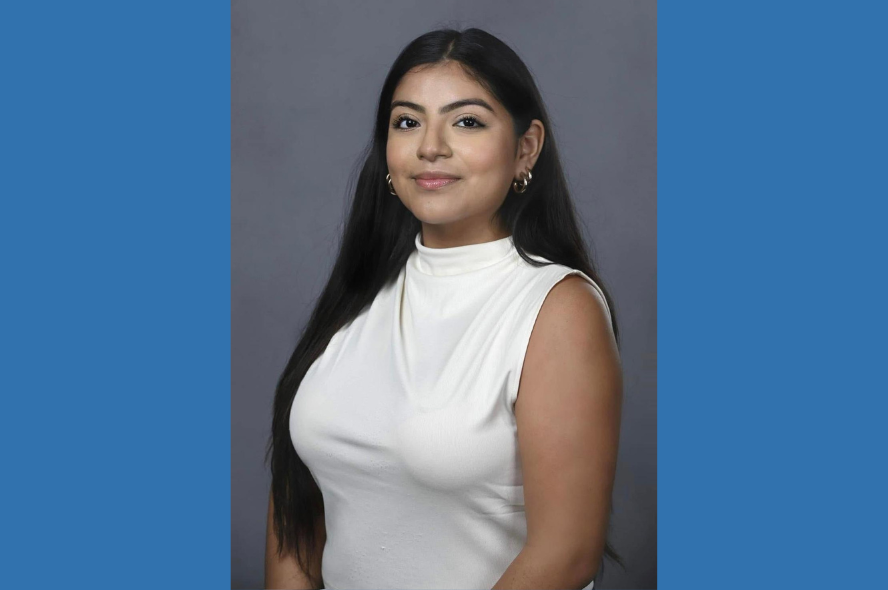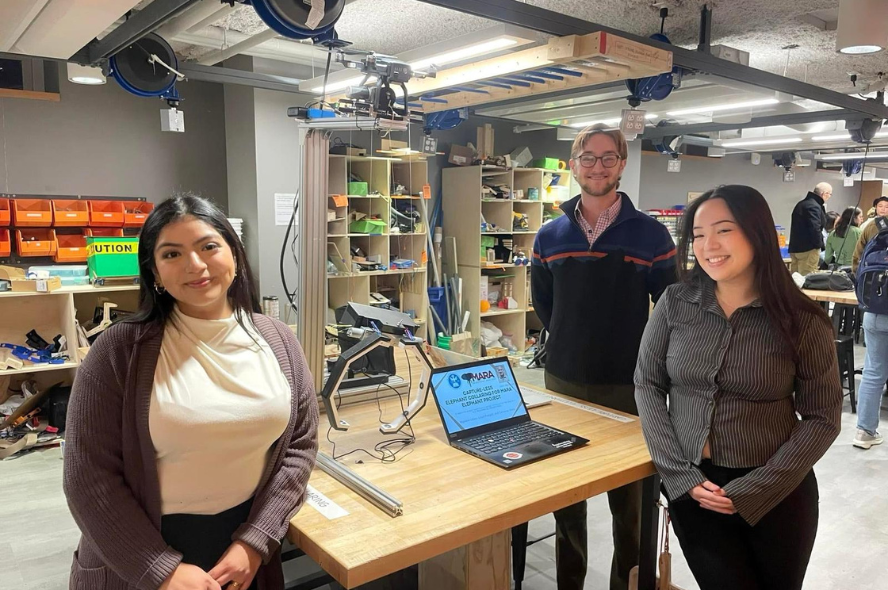From wrenches to robotics

By Celine Gomes
Migdalia Lopez, E25, held a wrench before she could even write her name. The youngest of four daughters in a low-income Alabama household, she became her father’s unofficial assistant in the garage—a space filled with rusted lawnmowers, sputtering engines, and endless questions.
Her dad, a self-taught mechanic with experience in landscaping, construction, and consulting, didn’t know he was mentoring the family’s first engineer. By day, he worked as a janitor at Mercedes-Benz. By night, he split his time between caring for his family and fixing machines in the garage. “I wanted to be let into that world I didn’t have access to,” Lopez says, recalling the thrill of watching her dad work and hearing stories about the engineering projects happening at Mercedes-Benz. Each time she grasped the logic behind a tool or cracked a problem on her own, nerves gave way to excitement—laying the groundwork for the problem-solving mindset that would define her future.
That early hands-on exposure led her from trade school, where she became a certified production technician, all the way to the Department of Mechanical Engineering at Tufts University.
This past spring, Lopez crossed the stage to receive her mechanical engineering degree—with honors, without a penny of student debt thanks to the QuestBridge Scholars Program, and with the unwavering support of her peers and the Bridge to Engineering Success at Tufts (BEST) community. As a first-generation college student, she credits these programs with providing early guidance and lasting encouragement. Back in Alabama, her family cheered proudly. “It was an aha moment,” Lopez says. “I beat the odds. I really did the whole thing.”
One of her proudest moments at Tufts? A senior capstone project unlike any other.
Alongside fellow mechanical engineering seniors Catreena Wang, E25, and Lloyd Padgett, E25, Lopez chose to work with the Mara Elephant Project, a conservation nonprofit in Kenya that monitors endangered elephants using GPS collars. The current method of tranquilizing elephants for collaring is expensive, risky, and can be harmful to the animals. In response to these concerns, the Tufts team engineered an alternative prototype: a drone-based collaring system that uses a dual-frame mechanism and electromagnets to safely release a collar over the elephant’s neck—no tranquilizers required.
The project pushed her team to consider not just technical solutions, but the elephants’ behavior, habitat, and the people working on the ground. It was a lesson in engineering beyond the lab, one that taught her the value of collaboration with community members and on-the-ground experts. Their work even led to an unforgettable moment: an early-morning elephant birth, witnessed live over Zoom. “How many people can say they’ve seen that?” she joked.
Lopez’s interests stretch beyond hardware. Since her first year at Tufts, she has conducted research in STEM education and translanguaging, exploring how multilingual students learn and express engineering concepts. As a CEEO Outreach Learning Fellow, she worked directly in K–8 classrooms, partnering with teachers to deliver hands-on engineering experiences. She also participated in weekly seminars focused on progressive engineering education, building community relationships, and supporting the social-emotional growth of young learners, with a focus on inclusive, justice-driven education.
“Take up all the space you can,” she encourages incoming Tufts engineers. “You do belong. You are seen.”
Working under McDonnell Family Assistant Professor Greses Pérez of the Department of Civil and Environmental Engineering, Lopez studied how language and culture shape learning, design, and decision-making in engineering. “Dr. Pérez is amazing,” Lopez said. “She’s been a huge support system for me.” A learning scientist and engineer herself, Pérez investigates how diverse cultural and linguistic practices influence student understanding, along with how to make STEM fields more inclusive and responsive to real-world communities.
Lopez isn’t slowing down anytime soon. In the fall she’ll pursue a fully funded master’s degree in mechanical engineering at Tufts. “Soon, I’ll be part of the 8% of Latinas who hold a master’s degree,” she said proudly. After graduate school, she hopes to work at the intersection of sustainable manufacturing and design, applying everything she’s learned to real-world systems that matter.
To incoming engineers searching for their path, her message is clear: “Find something that makes you nervous and also excited,” she said, thinking back to her childhood in her father’s garage, where her career began.
Department:
Computer Science , Mechanical Engineering , Center for Engineering Education and Outreach
